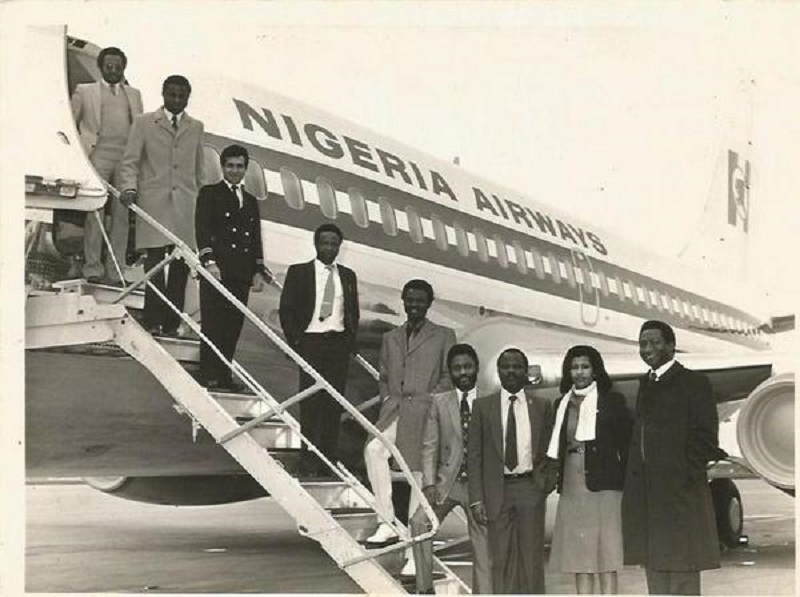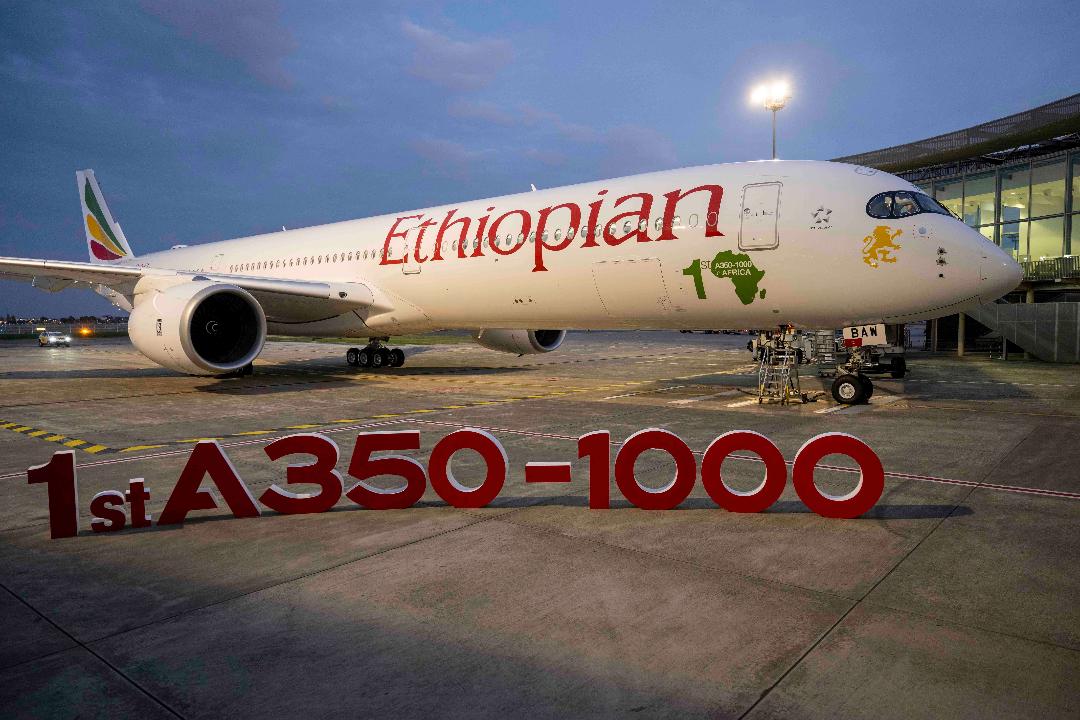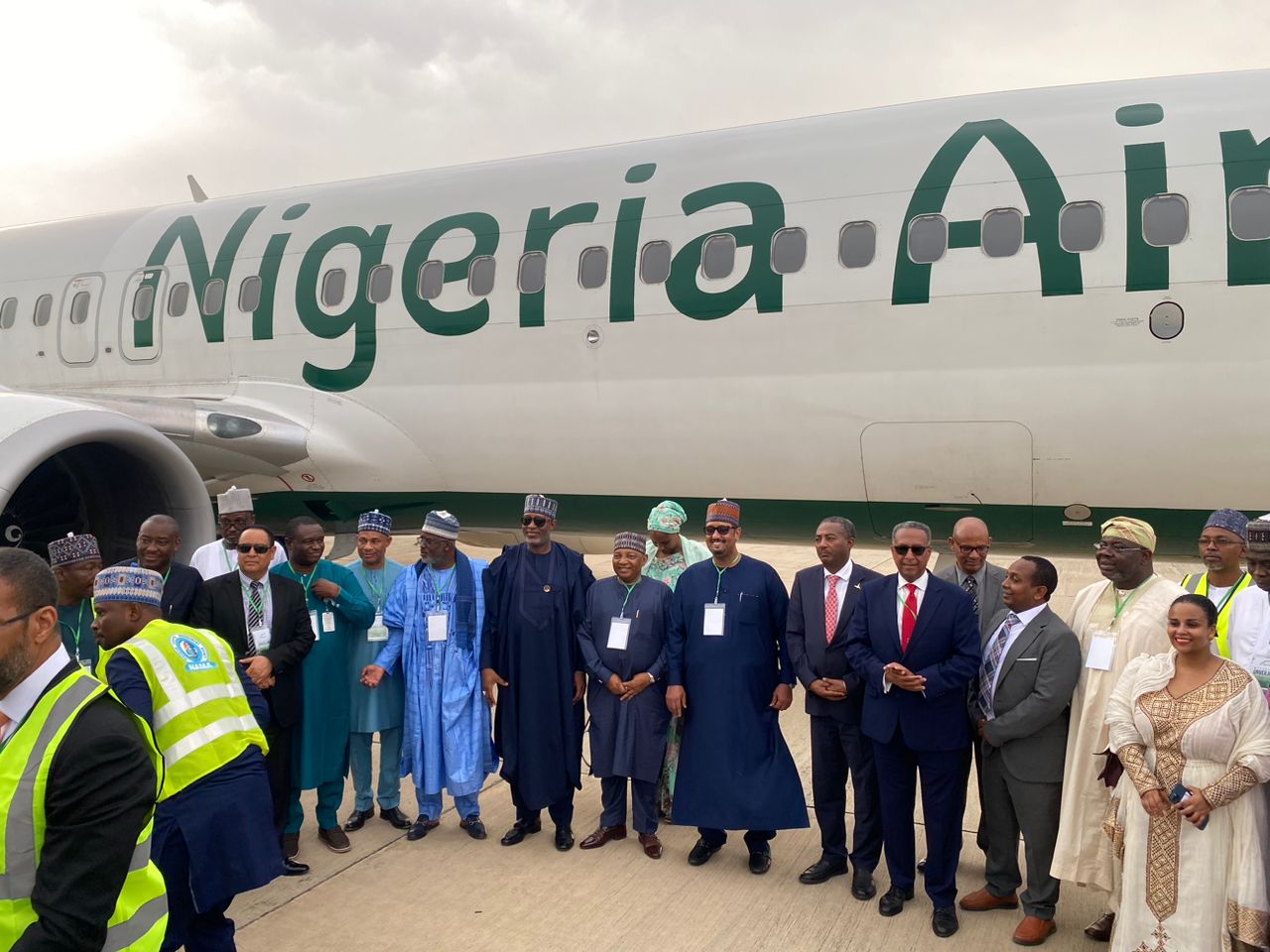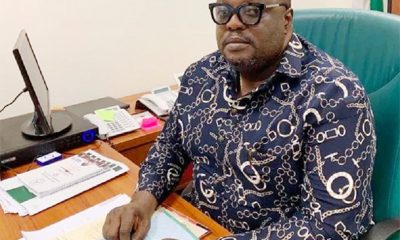Feature/OPED
Nigerian Airways, Air Nigeria and the Air we Breathe

By Prince Charles Dickson
“The secret of change is to focus all of your energy, not on fighting the old, but on building the new.” –Socrates.
One of the greatest preachers who ever lived, Charles Haddon Spurgeon, called the “prince of preachers,” loved to tell this story: It seems there was a Duke who once boarded a galley ship and went below to talk to the convicts manning the oars.
When he asked several of them what their crimes were, almost every man claimed that he was innocent, blaming someone else, or even accusing the judge of taking a bribe.
There was one young man whose reply was different. He said. “I deserve to be here, sir. I stole some money. No one is at fault but me. I am guilty.”
When the Duke heard this he shouted, “You scoundrel, you! What are you doing here among all these honest men? Get out of their company at once!” The Duke ordered the young prisoner to be released.
So, the young man was set free, while the rest of the prisoners were left to continue to tug at the oars. The key to his freedom was his admission of guilt.
In the last few weeks, I have “touchlighted”, the Nigerian Railways, and the old NITEL, I am randomly picking on what was once the fabric of this truly great nation called Nigeria, and this time, I sadly am x-raying what was equally known as the Nigeria Airways.
The story of Nigerian Airways! It’s a tale of ambition, progress, and unfortunately, ultimate decline.
Nigerian Airways didn’t simply emerge; it soared from the remnants of colonial influence, embodying a newly independent nation’s dreams. Born from the West African Airways Corporation (WAAC), a joint venture of British colonies, Nigeria seized its moment, taking majority control and eventually full ownership. This marked a significant step, not just in aviation, but in Nigeria asserting its autonomy on the world stage.
The 1960s and 70s were a time of rapid expansion, mirroring Nigeria’s post-colonial growth. Nigerian Airways became a symbol of progress and modernity. Investment in new aircraft, the establishment of international routes connecting Lagos to major global cities, and a burgeoning workforce all testified to the airline’s ambition. It wasn’t just about transporting passengers; it was about connecting Nigeria to the world, facilitating trade, tourism, and cultural exchange.
This ambition was further fueled by the oil boom of the 1970s. Nigeria’s newfound wealth translated into the acquisition of state-of-the-art aircraft like the DC-10, a symbol of technological advancement. Nigeria Airways even had the distinction of operating the last DC-10 ever built, a testament to its prominence in the aviation world. The airline became a major player in African aviation, a source of national pride, and a key contributor to the continent’s growing interconnectedness.
Sadly, the narrative takes a sombre turn. Despite its promising beginnings, Nigeria Airways became entangled in a web of mismanagement, corruption, and political interference. What were once symbols of progress – expansion and modernization – became burdens as the airline struggled to manage its growing fleet and complex operations.
Debt began to accumulate, and the airline found it increasingly difficult to maintain its ageing aircraft. This led to a decline in service quality, with delays, cancellations, and safety concerns becoming more frequent. Competition from both established international airlines and emerging African carriers further exacerbated the situation.
The 1990s and early 2000s saw various attempts to salvage the airline. Restructuring plans, privatization efforts, and even rebranding exercises were implemented, but none could overcome the deep-rooted problems. The airline was ultimately grounded in 2003, weighed down by insurmountable debt and unable to compete in a rapidly changing aviation landscape.
Now in academic parlance let me give us a short comparative analysis, using two national carriers. The first RwandAir, the flag carrier of Rwanda, is known for its relatively young age (founded in 2002) and impressive growth. It has become a symbol of Rwanda’s post-genocide resurgence and ambitions in the aviation sector. RwandAir’s main hub is the Kigali International Airport (KGL), a modern and growing airport that serves as a gateway to East Africa. RwandAir focuses on connecting East Africa to the rest of the world. It flies to over 25 destinations across Africa, the Middle East, Europe, and Asia.
While operating a modern fleet of Airbus and Boeing aircraft, including A330s for long-haul routes and Boeing 737s for regional flights. It has built a reputation for its excellent customer service, having won awards for its cabin crew and overall passenger experience. It’s also committed to safety and has obtained the IATA Operational Safety Audit (IOSA) certification.
Like many African airlines, RwandAir faces challenges such as competition from larger carriers, infrastructure limitations, and the need for continued investment to support its growth. It is growing in leaps and bounds.
Meanwhile, Ethiopian Airlines, a continental giant and flag carrier of Ethiopia and one of the largest and most successful airlines in Africa has a long history, dating back to 1945. Her Addis Ababa Bole International Airport (ADD) major hub is a significant aviation centre for the continent.
Ethiopian Airlines boasts an extensive network covering over 130 destinations across Africa, Asia, Europe, North America, and South America. It plays a crucial role in connecting Africa to the world. She operates a large and diverse fleet, including Boeing 787 Dreamliners, Airbus A350s, and Bombardier Q400s, allowing it to serve a variety of routes.
A Star Alliance Member, the world’s largest airline alliance, providing passengers with seamless connections and benefits. Ethiopian Airlines is known for its profitability and operational efficiency. It has consistently been ranked among the top airlines in Africa and has won numerous awards for its service and performance. Ethiopian Airlines plays a key role in promoting aviation development within Africa, with a vision to become the leading aviation group on the continent.
Let me not go into the botched story of the last Air Nigeria fraud, but simplistically put it this way, we have remained deaf, blind and dumb to the greatness that we possess, like Ethiopian Airlines like Rwandair. Trust me these nations have very dynamic governance issues and it’s not all gold glittering but we as Nigerians are on a bad patch. Our consolation was that we would get there and then my question is get where and, really we think anyone is waiting for us to get there. When we either do not want to get there or we are afraid of there and don’t even know there.
By 2030 Air Nigeria will still not be beyond the logo, that’s one airline that crashed without flying once. We will never know how much all the drama has cost us as a nation. Why did Virgin Atlantic leave Nigeria, what killed Bellview or Aero, why is Arik sick? Will Ibom and the humanitarian AirPeace stand the test? What’s Rwanda doing differently that we need to copy?
When all our leaders are saints, and no one is guilty of any infraction, no one is sorry for the mess Nigeria currently is, we will remain far from redemption, let the blame game continue; May Nigeria win…when—Only time will tell.
Feature/OPED
How Christians Can Stay Connected to Their Faith During This Lenten Period

It’s that time of year again, when Christians come together in fasting and prayer. Whether observing the traditional Lent or entering a focused period of reflection, it’s a chance to connect more deeply with God, and for many, this season even sets the tone for the year ahead.
Of course, staying focused isn’t always easy. Life has a way of throwing distractions your way, a nosy neighbour, a bus driver who refuses to give you your change, or that colleague testing your patience. Keeping your peace takes intention, and turning off the noise and staying on course requires an act of devotion.
Fasting is meant to create a quiet space in your life, but if that space isn’t filled with something meaningful, old habits can creep back in. Sustaining that focus requires reinforcement beyond physical gatherings, and one way to do so is to tune in to faith-based programming to remain spiritually aligned throughout the period and beyond.
On GOtv, Christian channels such as Dove TV channel 113, Faith TV and Trace Gospel provide sermons, worship experiences and teachings that echo what is being practised in churches across the country.
From intentional conversations on Faith TV on GOtv channel 110 to true worship on Trace Gospel on channel 47, these channels provide nurturing content rooted in biblical teaching, worship, and life application. Viewers are met with inspiring sermons, reflections on scripture, and worship sessions that help form a rhythm of devotion. During fasting periods, this kind of consistent spiritual input becomes a source of encouragement, helping believers stay anchored in prayer and mindful of God’s presence throughout their daily routines.
To catch all these channels and more, simply subscribe, upgrade, or reconnect by downloading the MyGOtv App or dialling *288#. You can also stream anytime with the GOtv Stream App.
Plus, with the We Got You offer, available until 28th February 2026, subscribers automatically upgrade to the next package at no extra cost, giving you access to more channels this season.
Feature/OPED
Turning Stolen Hardware into a Data Dead-End

By Apu Pavithran
In Johannesburg, the “city of gold,” the most valuable resource being mined isn’t underground; it’s in the pockets of your employees.
With an average of 189 cellphones reported stolen daily in South Africa, Gauteng province has become the hub of a growing enterprise risk landscape.
For IT leaders across the continent, a “lost phone” is rarely a matter of a misplaced device. It is frequently the result of a coordinated “snatch and grab,” where the hardware is incidental, and corporate data is the true objective.
Industry reports show that 68% of company-owned device breaches stem from lost or stolen hardware. In this context, treating mobile security as a “nice-to-have” insurance policy is no longer an option. It must function as an operational control designed for inevitability.
In the City of Gold, Data Is the Real Prize
When a fintech agent’s device vanishes, the $300 handset cost is a rounding error. The real exposure lies in what that device represents: authorised access to enterprise systems, financial tools, customer data, and internal networks.
Attackers typically pursue one of two outcomes: a quick wipe for resale on the secondary market or, far more dangerously, a deep dive into corporate apps to extract liquid assets or sellable data.
Clearly, many organisations operate under the dangerous assumption that default manufacturer security is sufficient. In reality, a PIN or fingerprint is a flimsy barrier if a device is misconfigured or snatched while unlocked. Once an attacker gets in, they aren’t just holding a phone; they are holding the keys to copy data, reset passwords, or even access admin tools.
The risk intensifies when identity-verification systems are tied directly to the compromised device. Multi-Factor Authentication (MFA), widely regarded as a gold standard, can become a vulnerability if the authentication factor and the primary access point reside on the same compromised device. In such cases, the attacker may not just have a phone; they now have a valid digital identity.
The exposure does not end at authentication. It expands with the structure of the modern workforce.
65% of African SMEs and startups now operate distributed teams. The Bring Your Own Device (BYOD) culture has left many IT departments blind to the health of their fleet, as personal devices may be outdated or jailbroken without any easy way to know.
Device theft is not new in Africa. High-profile incidents, including stolen government hardware, reinforce a simple truth: physical loss is inevitable. The real measure of resilience is whether that loss has any residual value. You may not stop the theft. But you can eliminate the reward.
Theft Is Inevitable, Exposure is Not
If theft cannot always be prevented, systems must be designed so that stolen devices yield nothing of consequence. This shift requires structured, automated controls designed to contain risk the moment loss occurs.
Develop an Incident Response Plan (IRP)
The moment a device is reported missing, predefined actions should trigger automatically: access revocation, session termination, credential reset and remote lock or wipe.
However, such technical playbooks are only as fast as the people who trigger them. Employees must be trained as the first line of defence —not just in the use of strong PINs and biometrics, but in the critical culture of immediate reporting. In high-risk environments, containment windows are measured in minutes, not hours.
Audit and Monitor the Fleet Regularly
Control begins with visibility. Without a continuous, comprehensive audit, IT teams are left responding to incidents after damage has occurred.
Opting for tools like Endpoint Detection and Response (EDR) allows IT teams to spot subtle, suspicious activities or unusual access attempts that signal a compromised device.
Review Device Security Policies
Security controls must be enforced at the management layer, not left to user discretion. Encryption, patch updates and screen-lock policies should be mandatory across corporate devices.
In BYOD environments, ownership-aware policies are essential. Corporate data must remain governed by enterprise controls regardless of device ownership.
Decouple Identity from the Device
Legacy SMS-based authentication models introduce avoidable risk when the authentication channel resides on the compromised handset. Stronger identity models, including hardware tokens, reduce this dependency.
At the same time, native anti-theft features introduced by Apple and Google, such as behavioural theft detection and enforced security delays, add valuable defensive layers. These controls should be embedded into enterprise baselines rather than treated as optional enhancements.
When Stolen Hardware Becomes Worthless
With POPIA penalties now reaching up to R10 million or a decade of imprisonment for serious data loss offences, the Information Regulator has made one thing clear: liability is strict, and the financial fallout is absolute. Yet, a PwC survey reveals a staggering gap: only 28% of South African organisations are prioritising proactive security over reactive firefighting.
At the same time, the continent is battling a massive cybersecurity skills shortage. Enterprises simply do not have the boots on the ground to manually patch every vulnerability or chase every “lost” terminal. In this climate, the only viable path is to automate the defence of your data.
Modern mobile device management (MDM) platforms provide this automation layer.
In field operations, “where” is the first indicator of “what.” If a tablet assigned to a Cape Town district suddenly pings on a highway heading out of the city, you don’t need a notification an hour later—you need an immediate response. An effective MDM system offers geofencing capabilities, automatically triggering a remote lock when devices breach predefined zones.
On Supervised iOS and Android Enterprise devices, enforced Factory Reset Protection (FRP) ensures that even after a forced wipe, the device cannot be reactivated without organisational credentials, eliminating resale value.
For BYOD environments, we cannot ignore the fear that corporate oversight equates to a digital invasion of personal lives. However, containerization through managed Work Profiles creates a secure boundary between corporate and personal data. This enables selective wipe capabilities, removing enterprise assets without intruding on personal privacy.
When integrated with identity providers, device posture and user identity can be evaluated together through multi-condition compliance rules. Access can then be granted, restricted, or revoked based on real-time risk signals.
Platforms built around unified endpoint management and identity integration enable this model of control. At Hexnode, this convergence of device governance and identity enforcement forms the foundation of a proactive security mandate. It transforms mobile fleets from distributed risk points into centrally controlled assets.
In high-risk environments, security cannot be passive. The goal is not recovery. It is irrelevant, ensuring that once a device leaves authorised hands, it holds no data, no identity leverage, and no operational value.
Apu Pavithran is the CEO and founder of Hexnode
Feature/OPED
Daniel Koussou Highlights Self-Awareness as Key to Business Success

By Adedapo Adesanya
At a time when young entrepreneurs are reshaping global industries—including the traditionally capital-intensive oil and gas sector—Ambassador Daniel Koussou has emerged as a compelling example of how resilience, strategic foresight, and disciplined execution can transform modest beginnings into a thriving business conglomerate.
Koussou, who is the chairman of the Nigeria Chapter of the International Human Rights Observatory-Africa (IHRO-Africa), currently heads the Committee on Economic Diplomacy, Trade and Investment for the forum’s Nigeria chapter. He is one of the young entrepreneurs instilling a culture of nation-building and leadership dynamics that are key to the nation’s transformation in the new millennium.
The entrepreneurial landscape in Nigeria is rapidly evolving, with leaders like Koussou paving the way for innovation and growth, and changing the face of the global business climate. Being enthusiastic about entrepreneurship, Koussou notes that “the best thing that can happen to any entrepreneur is to start chasing their dreams as early as possible. One of the first things I realised in life is self-awareness. If you want to connect the dots, you must start early and know your purpose.”
Successful business people are passionate about their business and stubbornly driven to succeed. Koussou stresses the importance of persistence and resilience. He says he realised early that he had a ‘calling’ and pursued it with all his strength, “working long weekends and into the night, giving up all but necessary expenditures, and pressing on through severe setbacks.”
However, he clarifies that what accounted for an early success is not just tenacity but also the ability to adapt, to recognise and respond to rapidly changing markets and unexpected events.
Ambassador Koussou is the CEO of Dau-O GIK Oil and Gas Limited, an indigenous oil and natural gas company with a global outlook, delivering solutions that power industries, strengthen communities, and fuel progress. The firm’s operations span exploration, production, refining, and distribution.
Recognising the value of strategic alliances, Koussou partners with business like-minds, a move that significantly bolsters Dau-O GIK’s credibility and capacity in the oil industry. This partnership exemplifies the importance of building strong networks and collaborations.
The astute businessman, who was recently nominated by the African Union’s Agenda 2063 as AU Special Envoy on Oil and Gas (Continental), admonishes young entrepreneurs to be disciplined and firm in their decision-making, a quality he attributed to his success as a player in the oil and gas sector. By embracing opportunities, building strong partnerships, and maintaining a commitment to excellence, Koussou has not only achieved personal success but has also set a benchmark for future generations of African entrepreneurs.
His journey serves as a powerful reminder that with determination and vision, success is within reach.
-

 Feature/OPED6 years ago
Feature/OPED6 years agoDavos was Different this year
-
Travel/Tourism10 years ago
Lagos Seals Western Lodge Hotel In Ikorodu
-

 Showbiz3 years ago
Showbiz3 years agoEstranged Lover Releases Videos of Empress Njamah Bathing
-

 Banking8 years ago
Banking8 years agoSort Codes of GTBank Branches in Nigeria
-

 Economy3 years ago
Economy3 years agoSubsidy Removal: CNG at N130 Per Litre Cheaper Than Petrol—IPMAN
-

 Banking3 years ago
Banking3 years agoSort Codes of UBA Branches in Nigeria
-

 Banking3 years ago
Banking3 years agoFirst Bank Announces Planned Downtime
-

 Sports3 years ago
Sports3 years agoHighest Paid Nigerian Footballer – How Much Do Nigerian Footballers Earn





















Pingback: Nigeria Airways, Nigeria Airways and the air we breathe - Otownloaded